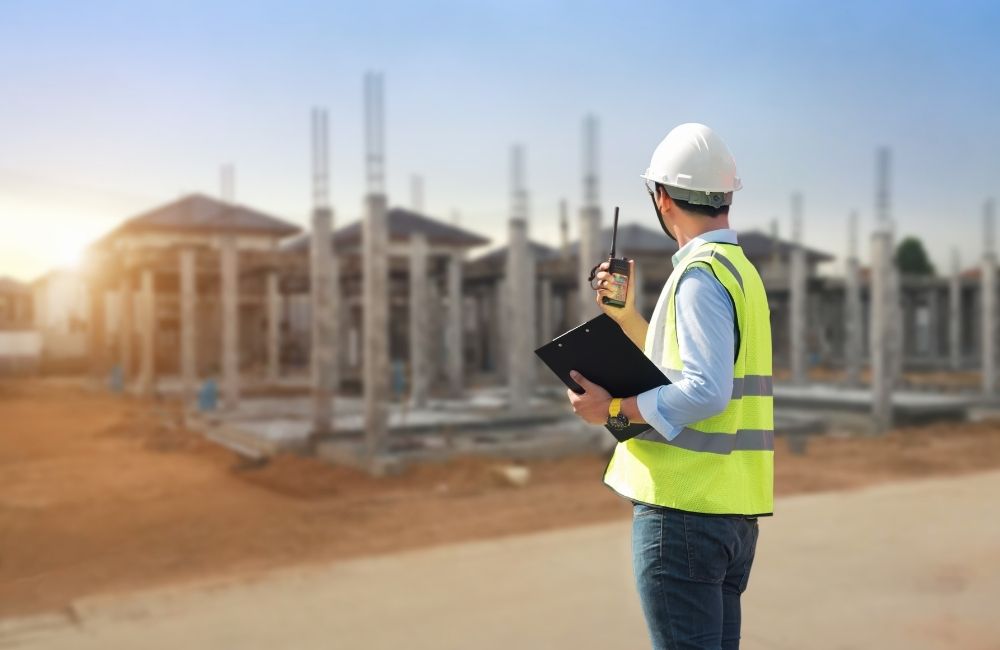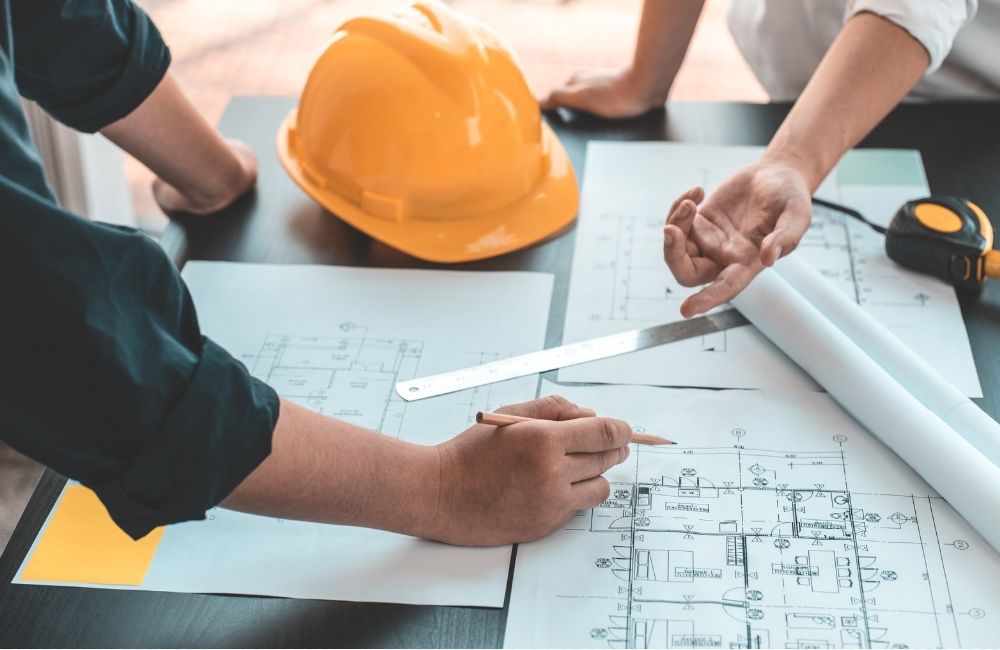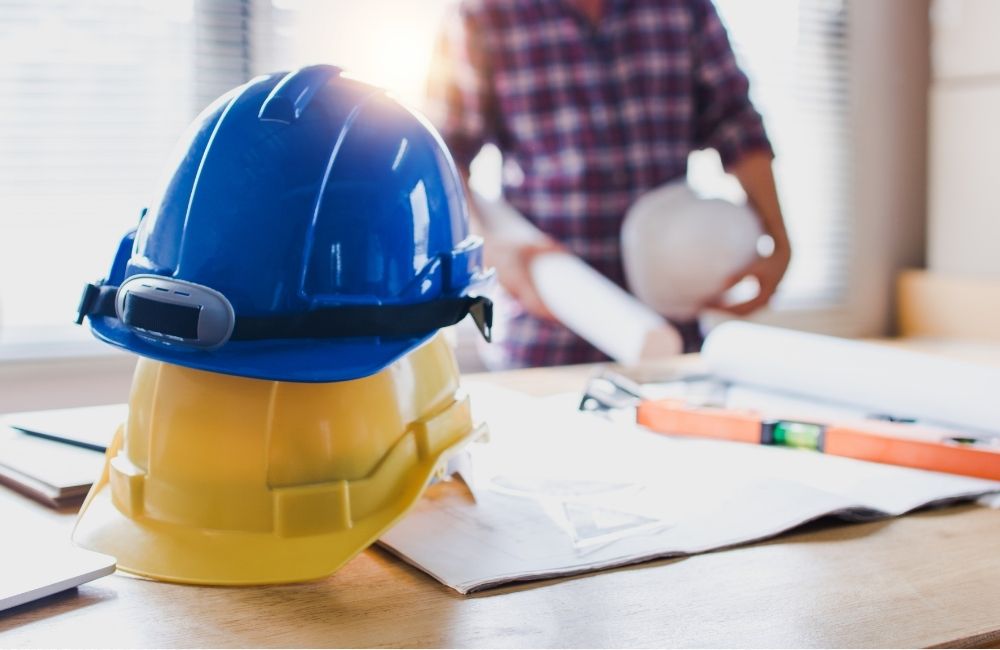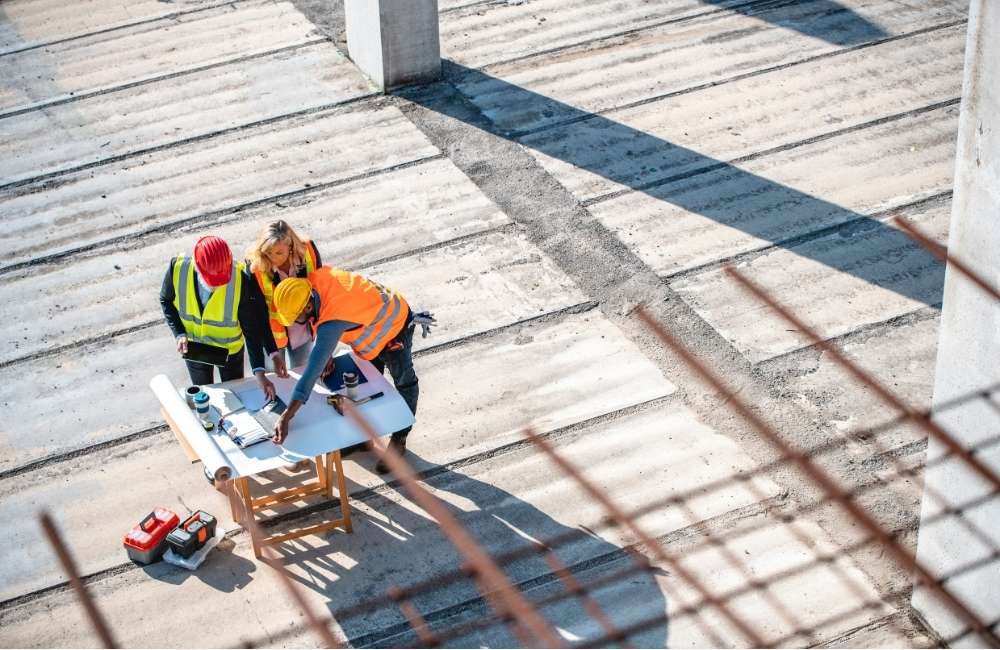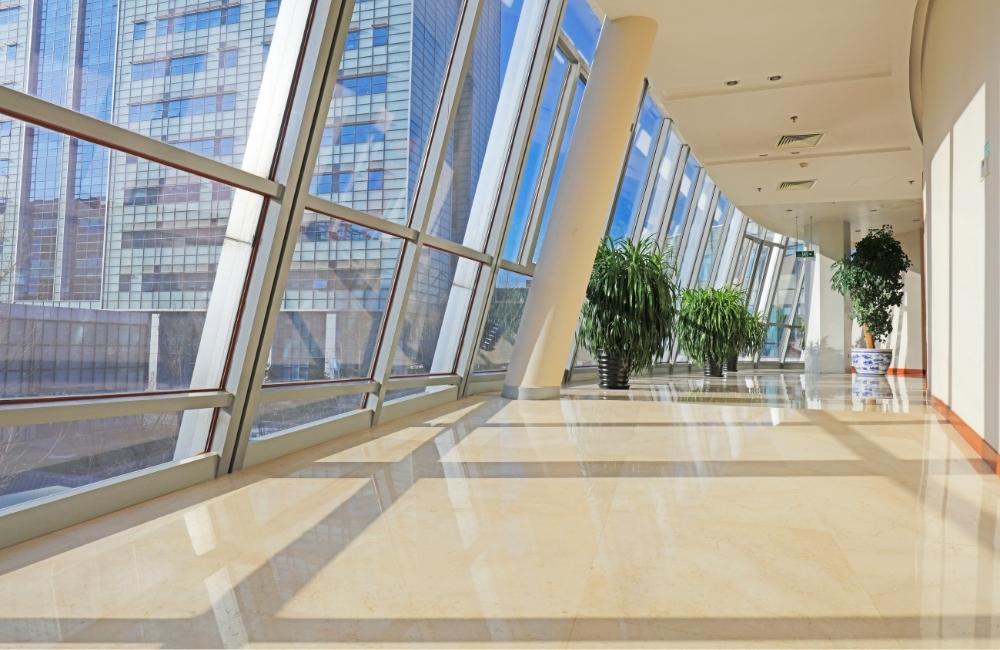Table of Contents
Key Takeaways
5 Key Contributions of Commercial Builders in Project Success
6 Tips for Choosing the Right Commercial Builders
- 1. Seek Referrals and Recommendations from Trusted Sources
- 2. Evaluate Credentials, Qualifications, and Experience
- 3. Prioritize Quality Over Cost
- 4. Assess Communication and Responsiveness
- 5. Pay Attention to Project Details and Customization
- 6. Ensure They Are a Good Fit for Your Business Goals
- What is the difference between commercial builders and residential builders?
- What should you look for in a commercial builder’s portfolio?
- What types of contracts do commercial builders use?
Ready to Start Your Next Commercial Project? Contact Claris Design•Build Today!
Key Takeaways✔ Trusted referrals from colleagues, suppliers, and online reviews can help identify reliable commercial builders. ✔ Verify licenses, certifications, and relevant project experience to ensure the builders are qualified for your specific needs. ✔ Opt for builders who focus on long-term quality over the lowest bid to avoid hidden costs and substandard materials. ✔ Responsive and clear communication throughout the project is essential to avoid delays and misunderstandings. ✔ The right commercial builders should understand and tailor the project to meet your business objectives, future needs, and deadlines. |
Choosing the right commercial builder is a critical decision for any business owner or developer embarking on a commercial construction project. Whether building a new office complex, retail space, or an industrial facility, the expertise and reliability of the chosen builder can significantly impact the project’s success.
Making an informed choice ensures that the project stays on track, meets all quality standards, and aligns with both budget and timelines.
Here are the six key tips to help businesses choose the best commercial builders for their projects.
5 Key Contributions of Commercial Builders in Project Success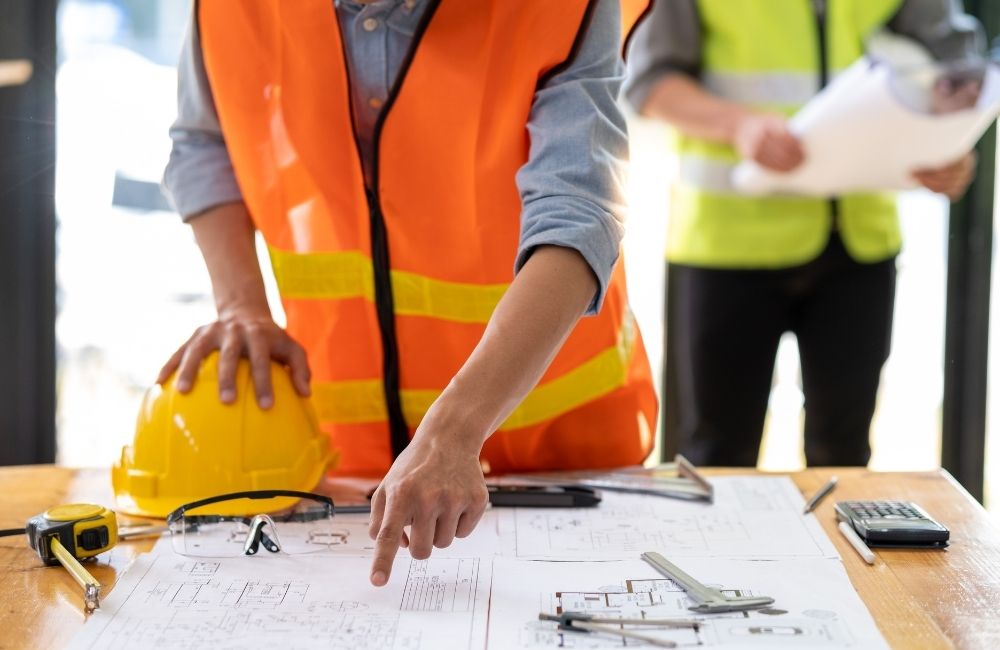
Choosing the right commercial builders can be the difference between a project that runs smoothly and one that encounters delays and issues. With the U.S. commercial construction market expected to grow to $203.5 billion by 2029, skilled builders are more important than ever in managing complex, large-scale projects effectively.
Here are the five key roles commercial builders play in project success:
- Overseeing the Entire Construction Process: Commercial builders manage the entire construction process, from initial design and planning to the final project completion. This includes coordinating every phase of the project to ensure smooth execution.
- Hiring and Coordinating Subcontractors: Commercial builders hire and manage subcontractors, such as electricians, plumbers, and other specialized trades. They ensure that all subcontractors are qualified and their work aligns with the overall project goals.
- Managing Budgets and Sourcing Materials: Builders handle the financial aspects of the project, managing the budget to prevent overruns and sourcing quality materials that fit both the project’s needs and budget constraints.
- Ensuring Compliance with Safety and Building Codes: Builders ensure that all work complies with local building codes, safety regulations, and industry standards. This prevents legal issues and ensures the project meets safety requirements, protecting workers and future occupants.
- Acting as Project Managers: Commercial builders align all moving parts and ensure communication among team members. They are key to keeping the project on schedule and ensuring that the final product meets both functional and aesthetic goals.
6 Tips for Choosing the Right Commercial Builders
1. Seek Referrals and Recommendations from Trusted Sources
One of the most reliable ways to find top-notch commercial builders is through referrals and recommendations. Businesses that have previously completed construction projects often have valuable insights into which builders delivered exceptional results and which ones fell short.
- Colleagues in the Industry: Colleagues who have recently completed construction projects can provide firsthand accounts of their experience with specific commercial builders. They can provide real-life examples of how the builders managed their projects, handled challenges, and communicated throughout the process.
- Suppliers and Subcontractors: Suppliers who frequently work with commercial builders can offer another perspective. They often have inside knowledge of which builders use high-quality materials, stay organized, and pay their subcontractors on time.
- Online Reviews and Testimonials: While personal referrals are often the best route, online reviews can supplement the search for commercial builders. Look for builders who have consistently high ratings across multiple platforms, but be cautious about over-relying on any single review.
2. Evaluate Credentials, Qualifications, and Experience
When choosing commercial builders, it’s crucial to evaluate their credentials, qualifications, and experience. These factors provide insight into the builder's professionalism, skill level, and ability to handle complex commercial projects.
- Licenses and Certifications: The first step in the vetting process is ensuring that the builders hold the necessary licenses and certifications. Without these credentials, there’s a risk of non-compliance with safety codes, which can lead to fines or project shutdowns. In 2021, the construction industry was responsible for 46.2% of all fatal falls, slips, and trips, highlighting the importance of selecting builders with strong safety protocols and compliance with Occupational Safety and Health Administration (OSHA) regulations.
- Experience with Similar Projects: Commercial construction often varies depending on the project type. For example, an office complex requires different skills and materials than a healthcare facility or retail center. A builder’s experience in a specific niche should align with the project’s scope and goals. Reviewing portfolios of past work can provide valuable insight into whether they can meet the unique challenges of the project.
- Membership in Trade Associations: Commercial builders who belong to professional organizations like the Associated Builders and Contractors (ABC) or the National Association of Home Builders (NAHB) often maintain high levels of industry standards. These memberships typically represent ongoing education, adherence to best practices, and a commitment to quality.
3. Prioritize Quality Over Cost
Although budget is always a significant factor in any commercial construction project, choosing the cheapest commercial builders can lead to substandard results. While it may be tempting to accept the lowest bid, this can backfire when it comes to quality, project timelines, and long-term durability.
- Avoiding Hidden Costs: Low bids might seem attractive, but they often come with hidden costs. Some commercial builders offer low initial bids but tack on additional charges for materials, labor, or unforeseen changes during the project. This can result in the final cost being much higher than initially anticipated.
- Quality of Materials: Builders who offer extremely low bids may also compromise on the quality of materials used. Low-cost materials can lead to frequent repairs, higher maintenance costs, and a shorter lifespan for the building itself. Commercial builders who prioritize quality will recommend materials that are not only cost-effective but also durable and energy-efficient.
- Ensuring Lasting Results: It’s important to look at the bigger picture. A well-built facility may cost more upfront, but it will require less maintenance, face fewer structural issues, and maintain its value longer. Quality commercial builders focus on the long-term performance of materials and ensure that the project is built to last.
4. Assess Communication and Responsiveness
Good communication is essential in every phase of a construction project. From the initial proposal to project completion, commercial builders need to communicate clearly, promptly, and effectively. Poor communication can lead to misunderstandings, delays, and additional expenses, while strong communication keeps the project on track.
- Responsiveness During the Bidding Process: Commercial builders who respond quickly to inquiries and provide detailed proposals show that they are committed to the project. Builders who delay in getting back to clients or fail to provide complete information during the bidding process might not be dependable once construction begins.
- Clarity in Project Updates: Regular updates are crucial to keeping clients informed about the progress of their projects. Builders who schedule regular meetings or send progress reports provide transparency, which builds trust. They should also be open to feedback and willing to explain any unexpected changes or delays.
- Problem-solving and Adaptability: Commercial builders with strong problem-solving skills are proactive, resourceful, and calm under pressure. They foresee potential issues and prepare contingency plans, effectively managing unexpected challenges like material shortages or design changes. A good problem solver is also flexible, offering practical alternatives and communicating solutions quickly.
5. Pay Attention to Project Details and Customization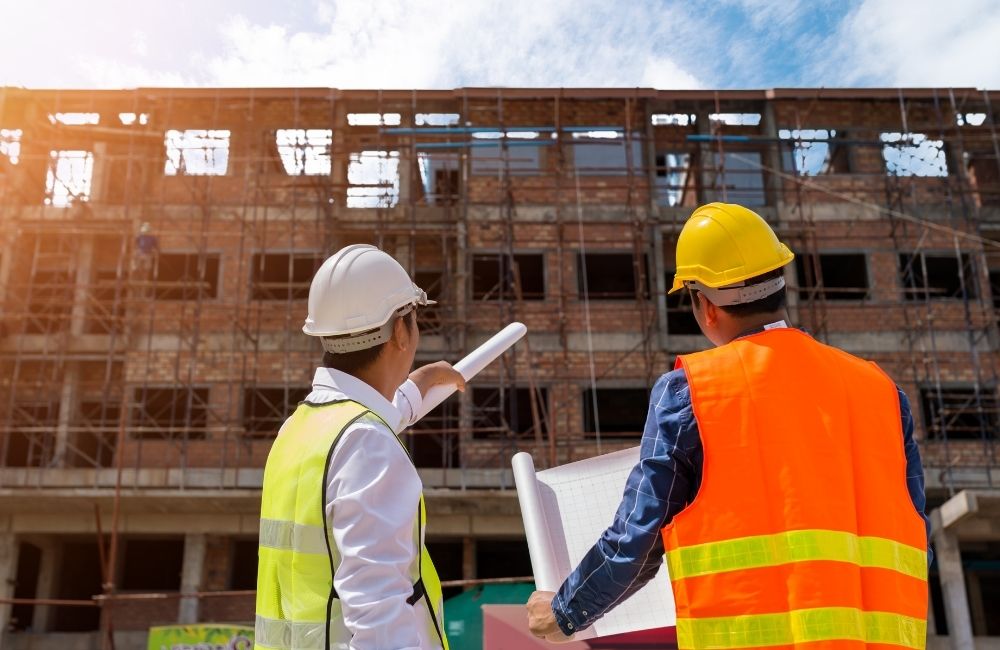
Commercial projects often require attention to specific details that go beyond standard construction. From custom architectural features to unique functional requirements, the right commercial builders must be able to handle these special requests with precision.
- Handling Customization: Every commercial building has unique requirements based on the business it serves. For example, a restaurant may need custom kitchen layouts, while a corporate office may require specialized conference rooms. Commercial builders need to be flexible and creative in meeting these demands.
- Managing Specific Timelines and Materials: Some projects may have time-sensitive requirements or require the use of specialized materials. Builders who can source these materials and meet deadlines ensure that the project stays on track. For example, a retail space might need to open by a specific date, meaning any construction delays could negatively impact the business.
- Attention to Finishing Touches and Design Consistency: Expert builders pay close attention to the small details that ensure a cohesive and polished final product. This includes ensuring that custom features like fixtures, trims, and branding elements are seamlessly integrated into the overall design.
6. Ensure They Are a Good Fit for Your Business Goals
Commercial construction projects are not one-size-fits-all, and the chosen builders need to align with the client’s overall business goals. The right commercial builders understand the industry, market, and long-term objectives of the business, allowing them to offer tailored solutions that support the project’s success.
- Understanding Business Needs: Different industries have different requirements. For example, a manufacturing facility may prioritize functionality and space, while a retail store may focus on aesthetics and customer experience. Builders who understand the specific needs of the business will be able to incorporate these elements into the project.
- Offering Scalability and Future-proofing: The best commercial builders think ahead. They offer solutions that allow for future expansion or modifications. For instance, they may suggest layouts that allow for the addition of new spaces or recommend energy-efficient materials that reduce long-term operating costs.
- Aligning with Budget and Deadlines: Builders who align with the client’s business goals using various methods, such as developing detailed project timelines and breaking down tasks into clear phases. Builders also regularly communicate cost updates and work closely with project managers to track spending, ensuring that the project stays within budget.
Frequently Asked Questions
What is the difference between commercial builders and residential builders?
Commercial builders specialize in constructing large-scale projects like office buildings, shopping centers, and industrial facilities, while residential builders focus on homes, apartments, and housing developments. The requirements for commercial projects often involve more complex regulations, safety standards, and permits. Additionally, commercial builders typically handle larger budgets and work with different materials compared to residential builders.
What should you look for in a commercial builder’s portfolio?
When reviewing a commercial builder’s portfolio, look for projects similar in scope and complexity to your own. Pay attention to the quality of the finished work, the types of buildings they've constructed, and any custom features they've incorporated. A strong portfolio should showcase a builder’s versatility, attention to detail, and ability to meet client needs across various industries.
What types of contracts do commercial builders use?
Commercial builders commonly use fixed-price contracts, which set a predetermined cost for the entire project. They may also use cost-plus contracts, where the client covers the actual project costs plus a fee, or time and materials contracts for more flexible projects. The contract type depends on factors like project size, complexity, and the client's budget preferences.
Ready to Start Your Next Commercial Project? Contact Claris Design•Build Today!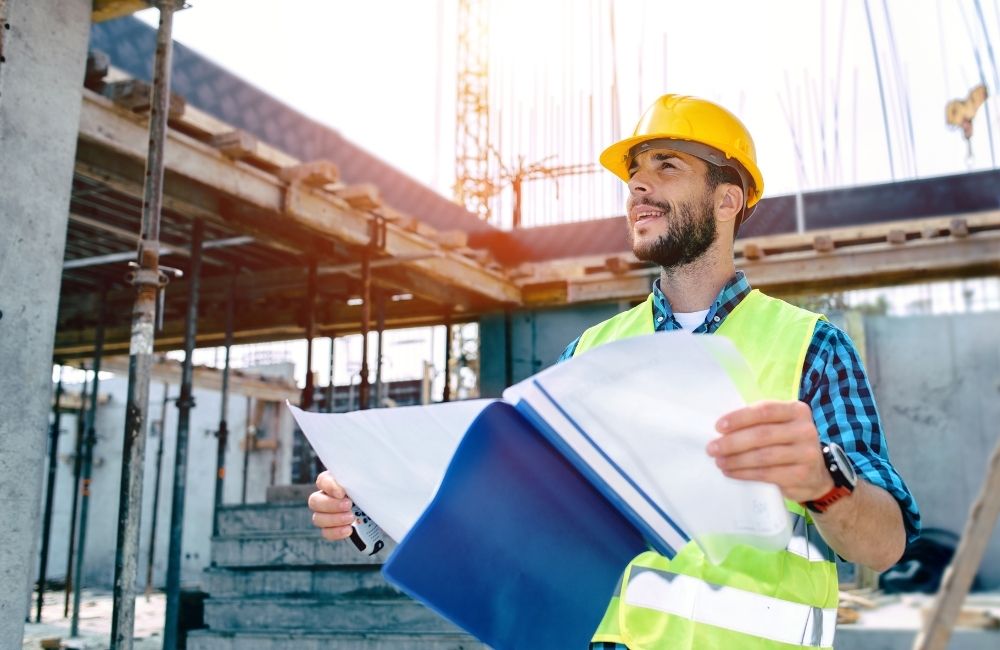
If you're looking for reliable, experienced commercial builders, Claris Design•Build is here to help. With over 30 years of industry experience, Claris Design•Build has built a reputation for quality and customer satisfaction. Our team of experts will work closely with you to ensure every aspect of your project aligns with your business goals. Reach out to Claris Design•Build today and ensure your project is completed on time, on budget, and to the highest standards.



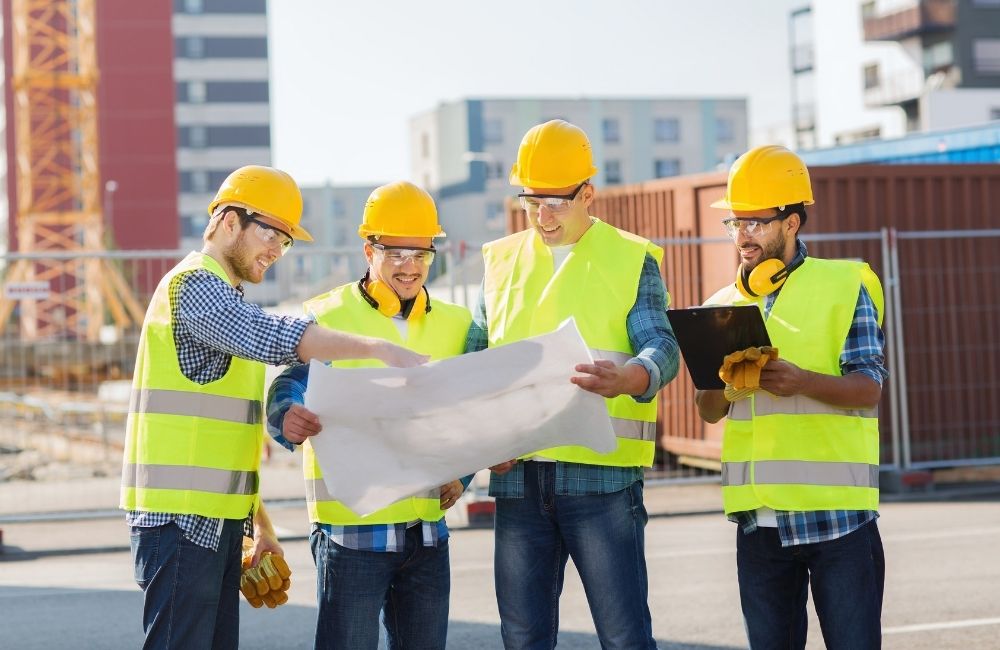
![[2025 UPDATE] Commercial Construction Cost per Square Foot in the US](https://www.clarisdesignbuild.com/wp-content/uploads/2025/04/2025-UPDATE-Commercial-Construction-Cost-per-Square-Foot-in-the-US-3.jpg)
